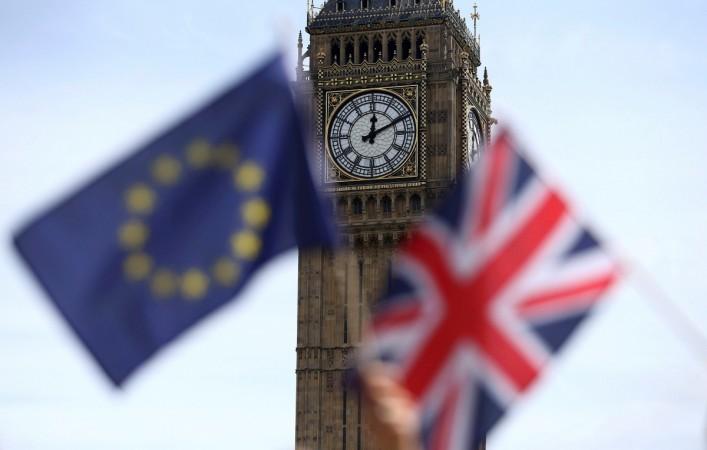
Friday, June 23, will mark the first anniversary of the much-discussed Brexit or Britain's exit from the European Union (EU). It was on this day in 2016 that the pro-exit votes narrowly outnumbered the no-exit ones in a referendum which was called by former UK prime minister David Cameron in what was nothing less of a political hara-kiri. The stunning result left the politics in the UK in a mess and Cameron himself, who was heading a strong majority government at the moment, quit as a moral responsibility.
His successor Theresa May did not quite run the show smoothly and committed another hara-kiri herself by calling a snap election on June 8, expecting that a verdict in her favour would settle the Brexit issue once and for all. The result of the elections saw the ruling Conservative's position weakened and the Labour led by Jeremy Corbyn, who was struggling in his own party not so long ago, regain prominence in the country's politics.
The verdict of June 8 could put the UK government in a weak position while making the dealings with the EU but there would be no backtracking as Article 50 of the Lisbon Treaty on the EU has already been triggered.
How Brexit procedure could go from here
May's team arrived in Brussels, which houses the headquarters of the EU, on June 19 to begin the drawn out procedure of exiting the EU.
Theresa May's Brexit team has arrived in Brussels today to kick off the drawn out process of leaving the European Union.
Brexit Secretary David Davis and the European Chief Negotiator for Brexit Michael Barnier have already met to start the groundwork for the negotiations.
The EU was apprehensive that Britain would not be prepared for the initial stages of the exit process because of the June 8 election. Three months have already passed since the Article 50 was sent and there has been hardly any progress on Brexit.
The EU was scheduled to hold its June summit on Thursday where all 28 members are supposed to be present. The EU commission will let the 27 member states know what exactly has happened on Brexit a week after the negotiations began.
On July 17, the officials will continue to work in the direction of reaching a deal. The focus of the discussion is likely to be on the citizens' rights and the UK's bill on Brexit. The process is likely to go till August.
Between October-December, the first stage of the Brexit is likely to be complete. Barnier has hoped that everything will be completed by October next year and the future relationship between the EU and UK will also be given a shape by then.
In March 2019, two years will be over since triggering of Article 50 and any possibility of the deadline extending by another year will need the approval of all 27 member states. Needless to say, a failure to conclude the procedure by then will only complicate things further.
By April 2019, one expects to see Britain going out of the EU, irrespective of a deal or without.
All eyes will be on how Brexit eventually happens. Experts feel the chances of a hard exit are much more since both the major parties – the Conservative and Labour – are in favour of controlling immigration. In that case, the UK will lose access to the single market benefits, clearly marking the divorce.

















